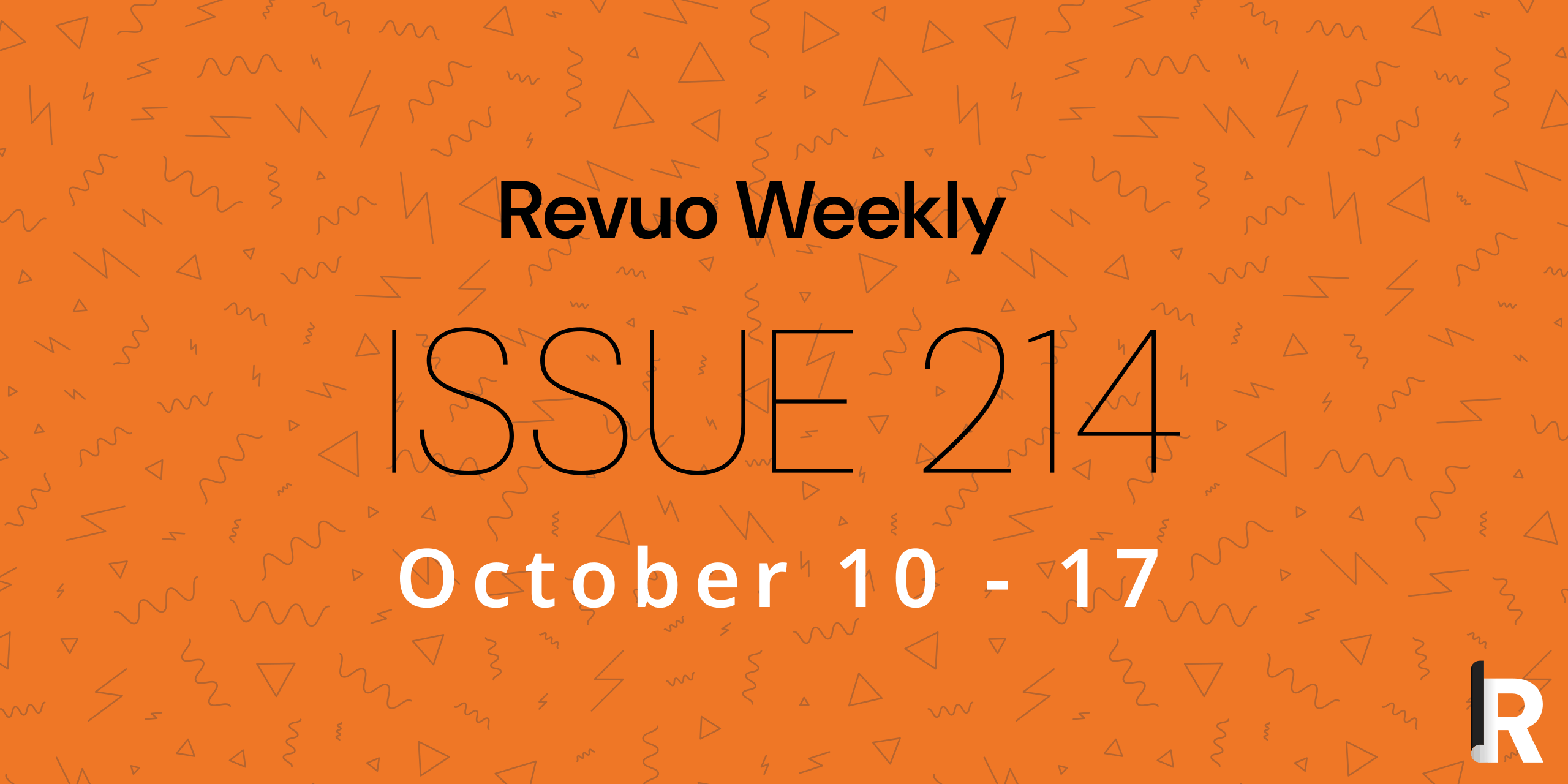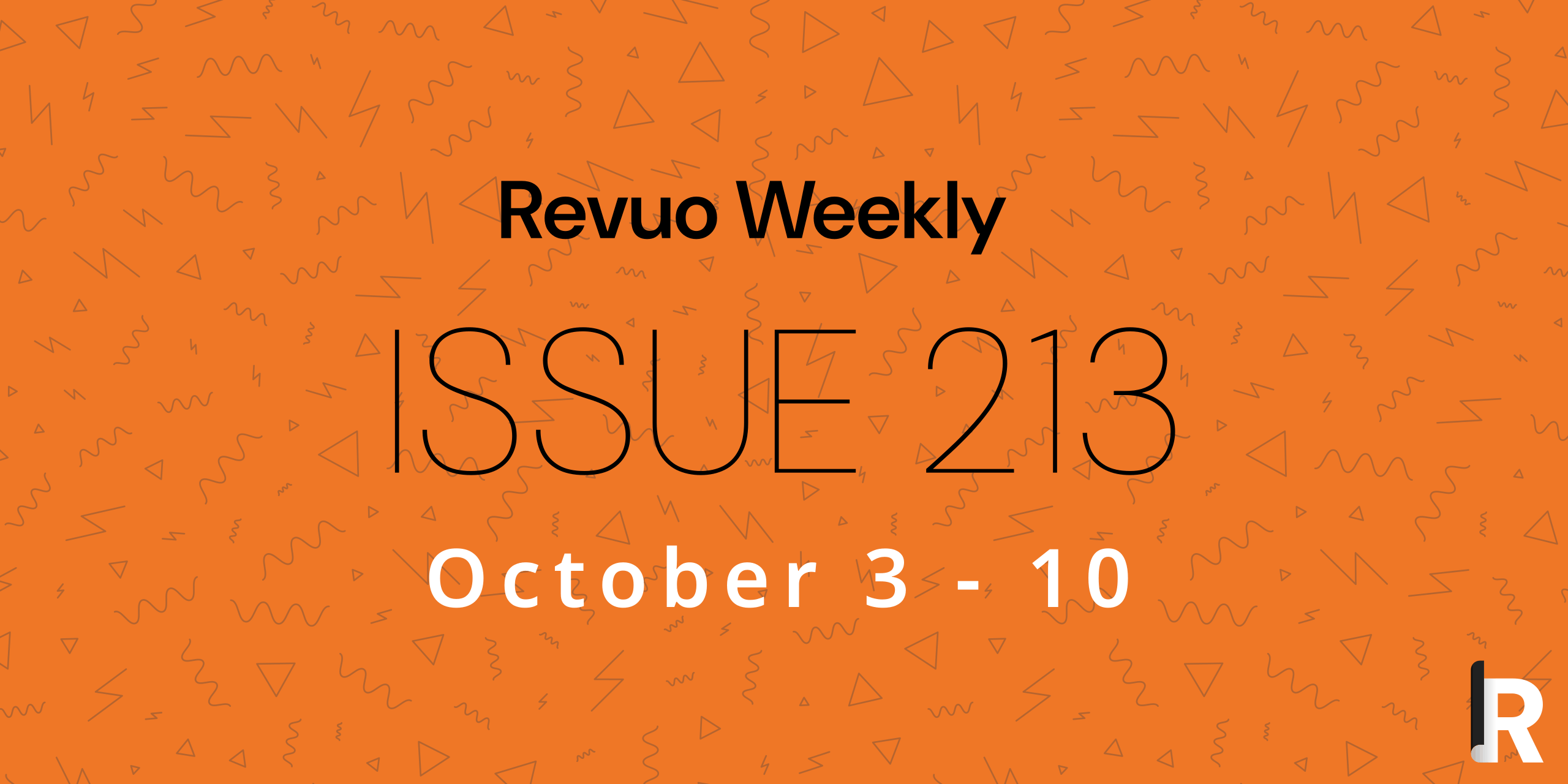Monero
I'm trying to arrive at the function that describes the following, but can't quite figure it out for multiple blocks. (there are some useful insights for a single block [here](https://bitcoin.stackexchange.com/questions/25293/probablity-distribution-of-mining/43592).) assume the Poisson point process that is the arrival of proof-of-work blocks on Monero. the mean of the block times is the target block time `t` (120 seconds). also assume `n` subsequent blocks. also assume `p`, the probability of `n` subsequent blocks having a mean block time less than or equal to `T`. given `t`, `n` and `p`, how can I calculate `T`?
Created a simple sample jackpot website for educational purposes, especially educational when you look at the rigged version of this even thought it looks legit https://github.com/ErikASD/simpyle-xmr-arcade-rigged with all the bs provability fair.
Hello anons, I've launched a new YouTube series investigating how Monero can be attacked by chain analysis. This is my attempt at rebooting Breaking Monero. The first three episodes are now available to view. I am also uploading on Odysee and Rumble! Links: https://odysee.com/@anti_moonboy:7 https://rumble.com/user/AntiMoonboy
Whenever possible, use QR codes from sub-addresses to share your wallet. Alphanumeric character strings, as we know our wallets, are much easier for analysis companies and AI to collect and analyze.
Hi everyone, I'd like to know if you use instant crypto exchanges when you need to buy or sell Monero? I mean such services as Exolix, Trocador, simpleswap and similar?

# What is Haveno? Haveno is a decentralized exchange (DEX) for trading Monero (XMR) p2p. It offers a user-friendly, private, and secure way to trade without relying on centralized exchanges. Think of Haveno as a p2p Localmonero alternative. # Download Haveno * Visit [https://haveno-reto.com](https://haveno-reto.com) and download the version for your operating system (Windows, macOS, or Linux). * Some antivirus programs might flag Haveno due to the embedded Monero codebase. This is a **false positive** and happens because Monero code includes mining functionality. If you are concerned, review the source code on the [Haveno-reto GitHub](https://github.com/retoaccess1/haveno-reto). * If the software is blocked, you can add it as an exception or temporarily disable your antivirus during installation. [Video Tutorial:](https://www.youtube.com/watch?v=sqy741YvCEo) [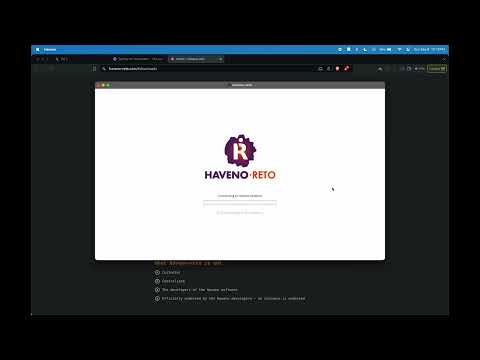](https://www.youtube.com/watch?v=sqy741YvCEo) # What is Haveno-Reto? Understanding the Network You might be wondering, what’s the difference between **Haveno** and **Haveno-Reto**? Here’s a simple analogy: * **Haveno** is the software. * **Haveno-Reto** is the live **p2p network** you connect to for real trades on the mainnet (third-party, not by the Haveno devs). Think of it like Minecraft: **Minecraft** is the software, while **Hypixel** is a server you connect to for multiplayer games. Similarly, **Haveno** is the software, and **Haveno-Reto** is the network where real trading happens. # Avoid Testnet Confusion If you download the unconfigured client from the main [Haveno-Dex GitHub repository](https://github.com/haveno-dex/haveno), you’ll only connect to the **Monero testnet**. This means you won't be able to make real trades. To trade on the **mainnet**, make sure you're using the pre-configured **Haveno-Reto client**. Haveno is live on mainnet and you can use it today but many people are still struggling to install it, mainly due to a lack of easily accessible information. This guide is supposed to address this. If you have any questions, feel free to ask them in this thread!
 primal.net
primal.net
Guys, Get on Nostr, there's a growing Monero community trolling Bitcoin maxis, Garnet is a new nostr client to tip XMR, for example: as Italy Raises Capital Gains Tax on Bitcoin from 26% to 42%: https://primal.net/e/note1nsk54jclkjsx3sv4kmwhjmjept0v73rzascn02wt2zs2k6lqlctskltd57

- **[https://youtu.be/xK5KFXU3srI](https://youtu.be/xK5KFXU3srI)** From min 3:53 about Monero.
I was interested on which the best way to accept XMR programmatically and made this concept payment processor that credits PGP based accounts with the XMR amount deposited like an exchange would have with sub addresses assigned to each account. When withdrawing, It is a lot more difficult to implement as transfer RPC call cannot auto-calculate the fee. Workaround: Estimate transfer is sent with no relay transfer2 with no relay is sent after deducting fee manually. Checks for proper deduction and then uses relay_tx for the final step. If you have any suggestions on how to improve this, especially if you have a better architecture in mind for the withdraw/deposit functionalities.
Why Tornado Cash Free Speech defense was rejected in Court w/ #MoneroTopia24 Speakers, Tor Ekeland and Mike Hassard, Tune-in to a LIVE #MoneroTalk EPI TMRW 10/17 at 7AM-EDT/1PM-CEST! Watch here YT➡️: https://www.youtube.com/live/9vC7R4F22yU?si=fiKRr8aR3g3RTmC6 TWITCH ➡️: twitch.tv/monerotalk 🙏🏽Thank you to our show sponsors cakewallet.com & Stealthex.io

some of the changes include: upgrade to Monero v0.18.3.4 point release, polyseed support, removal of moneroworld and Samourai Wallet-operated XMR remote node, removal of in-app donate to developer feature, monerochan disabled by default, tx. fee selection tweaks and other miscellaneous stuff. consider hopping on codeberg, testing it, commenting open issues, opening new ones. repository: https://codeberg.org/anoncontributorxmr/mysu/
Grow Monero w/us at the MoneroTopia24 Confer! If we use it we win! 💪🗽🚀 LIVE Spaces (MT 328) TODAY'S 🎙SHOW:In this episode Douglas Tuman hosts a Twitter Spaces session with the community concerning Monero, its current challenges, and the upcoming MoneroTopia24 conference in Mexico City! Doug emphasizes the importance of digital cash, the MoneroTopia event, and the need for the Monero community to unite in response to an "adversarial environment," notably referencing Monero's delisting from Kraken in Europe. Vlad Costea, an early Bitcoiner, discusses Monero's importance in preserving privacy and draws parallels with other privacy technologies, while Aaron Day talks about his experiences promoting Monero and privacy coins in workshops across the U.S. We also had Tatiana, singer-songwriter who is a peace and liberty activist join us in addition to many more guests! Various privacy tech projects and philosophical concerns about privacy, regulation, and technology are explored throughout the spaces! Watch Here (YouTube)➡️ https://youtu.be/e0f7yVTnhog Watch Here (Odysee) ➡️ https://odysee.com/@MoneroTalk:8/grow-monero-w-us-at-the-monerotopia24:8 Listen Here 🎧: https://www.monerotalk.live/monerotalk-328 Coffee & Monero, Go to Gratuitas.org today! {Buy your MoneroTopia 24 Mexico City Confer tickets TODAY at MoneroTopia.com! } FOLLOW US https://monero.town/u/monerotalk & https://mastodon.social/@monerotalk Thank you to sponsors, u/cakelabs and u/Stealthex_io as well as u/sunchakr for making these interviews possible! And of course our listeners and supporters for making Monero Talk possible! Podcasts 🎧 : iTunes: https://podcasts.apple.com/us/podcast/monero-talk/id1445930212 Spotify: https://open.spotify.com/show/60lQ05X8lcuXv71fhi6hl7?si=SL2rlvDPS0q68169NlCrtQ If you enjoy our show please Subscribe, Like, Share, Rate our YouTube Channel & Podcasts. This will help us grow and spread Monero content!
What's Changed * Update to monero-project v0.18.3.4 and monero-java v0.8.33 by @woodser in #1314, #1281 * Play sounds for notifications (can be disabled in Settings) by @woodser in #1295 * Schedule offers using available and pending funds by @woodser in #1303 * Support AppImage installer for Linux by @TheTollingBell in #1270 * Support flatpak installer for Linux by @Jabster28 in #1230 * Support one line installer for Tails by @xmrrmx in #1312 * Show transaction details in Funds > Transactions with transaction key by @woodser in #1311 * Show transaction fees in Funds > Transactions and export to CSV by @woodser in #1288 * Fix exporting and importing payment accounts across clients by @woodser in #1293 * Sync blockchain locally depending on last used local node by @woodser in #1298 * Reclassify mainnet nodes as public nodes and remove provided nodes by @woodser in #1315 * Make my offer buttons easier to read in offer book view by @bvcxza in #1310 * Update naming conventions of CI installer artifacts by @Jabster28, @woodser in #864, #1328 * De-duplicate additional trade statistics by @woodser in #1326 * Add log file dedicated for errors (haveno_error.log) by @preland in #1256 * Add deploy-tmux and deploy-screen configs in Makefile by @kekebit in #1257 * Bug fixes
Finally, a nice looking female talking sense about Monero
cross-posted from: https://monero.town/post/4625591 > cross-posted from: https://monero.town/post/4625590 > > > **[https://github.com/Cyrix126/gupaxx/releases/tag/v1.5.1](https://github.com/Cyrix126/gupaxx/releases/tag/v1.5.1)** > > > > **Gupaxx v1.5.1 important fixes** > > > > - Freeze after some time > > - Xmrig could not be started after Xmrig-Proxy manually (Linux/MacOS) > > - Node and Proxy custom args were not parsed correctly > > - Node and Proxy custom args were applied if not empty in simple mode > > - Unable to save node selection in Proxy Tab > > - P2Pool status could not get green if verbosity level was below 3 > > - Crashes on Wayland
My link (possibly slower, but uncensorable) https://simplex.chat/contact#/?v=2-7&smp=smp%3A%2F%2FPtsqghzQKU83kYTlQ1VKg996dW4Cw4x_bvpKmiv8uns%3D%40smp18.simplex.im%2FsBdaFdTh8qCzSuVdYqI7J9XhZAV5BDbq%23%2F%3Fv%3D1-3%26dh%3DMCowBQYDK2VuAyEA9deQfu1cIy26Z5rgKQkuoSsUTYaT6FAynZghG9OMZgk%253D%26srv%3Dlyqpnwbs2zqfr45jqkncwpywpbtq7jrhxnib5qddtr6npjyezuwd3nqd.onion&data=%7B%22type%22%3A%22group%22%2C%22groupLinkId%22%3A%22XIEwZOBLi7wgRMUQhqsotA%3D%3D%22%7D SimpleX Directory Service (faster but censorable) Link to join the group XMRBazaar: https://simplex.chat/contact#/?v=2-7&smp=smp%3A%2F%2Fhpq7_4gGJiilmz5Rf-CswuU5kZGkm_zOIooSw6yALRg%3D%40smp5.simplex.im%2FsWwpeS8HJWWRSSehva2u5D1O8RCys6SI%23%2F%3Fv%3D1-3%26dh%3DMCowBQYDK2VuAyEA5rQ8ytC4ghZE9kLug0Bhh3RSfauu7nwvaFbMID2B0i0%253D%26srv%3Djjbyvoemxysm7qxap7m5d5m35jzv5qq6gnlv7s4rsn7tdwwmuqciwpid.onion&data=%7B%22type%22%3A%22group%22%2C%22groupLinkId%22%3A%22nULpAvFCXcojzRK7hKTA6g%3D%3D%22%7D Edit: i see no difference in those links. I wonder how the directory would make that link into a link that would work at all times if it's the same link. Edit 2: nvm i see the differences now. Had to look farther in
"Canadian trucker problem" Monero fixes that, right? If Monero can be a solution then it should prove itself when the time comes, not "in hindsight." People need basic necessities like water. Can Monero address the problem?
To ignore the right to privacy is to fail to recognize the benefits it brings and the serious problems that arise when it is lost, both personally and collectively. The famous phrase “knowledge is power” resonates in numerous movies and novels. If knowledge really is power, privacy acts as the means to manage that power. The more data one possesses about a person, the greater the ability to anticipate and manipulate his or her actions, thus granting considerable power over him or her. This power can be exercised by both governments and companies, whose priorities may not coincide with those of the individual. Technological evolution has enabled both companies and governments to manage an unprecedented quantity and quality of information. Never before in history has so much been known about an individual. The concept of “surveillance capitalism,” introduced by Shoshana Zuboff in 2013, refers to the commercialization of personal data and the fundamental framework of the surveillance economy in which we live today. To understand the loss of privacy, it is necessary to understand how this system operates. Devices such as computers, cell phones and smart objects are, in essence, data collectors. Every interaction with mobile reveals data about location, contacts, preferences, browsing history and more. Those interested in learning what information Google has about them can visit https://myactivity.google.com and find an extensive log of their online activities. The collection of personal data, especially on Android devices, is well known, but what is the purpose behind this collection? The extracted data is analyzed, aggregated and sold to create user profiles ranging from gender and age to interests, religious beliefs and political orientation. There is no single entity in charge of this process; different companies, institutions and governments use similar collection and analysis models. Companies such as Facebook, Twitter, data-brokers, insurers and banks, as well as Cambridge Analytica, participate in this practice. The result is a profile that makes it possible to predict and potentially influence users' decisions. Why is privacy so crucial? Our behavior changes when we are aware that we are being watched or recorded. Moreover, if every action or word is documented, it limits our ability to change our minds. We could always be judged by what we said or did in the past. Human beings are not static; they evolve throughout their lives. However, society often does not accept that someone can change their perspective as a result of new experiences or information. A person with definite political views who then radically changes will be seen as inconsistent. Privacy gives us the freedom to evolve, to have second chances and to grow without being judged by the natural process of human development.

**Fraud eXMR** An *[article](https://coinmarketcap.com/community/articles/67092ce594ff5d39214c4015/)* on coinmarketcap caught my attention because Monero was mentioned. It mentioned a centralized exchange called yobit, which I had never heard of before, so I did some research. It seems **EXMR** is offered there. - [https://yobit.net/cn/buy/EXMR#6M](https://yobit.net/cn/buy/EXMR#6M) Perhaps the websites concerned will be made aware that this is a scam, the name 'Monero' and 'XMR' are being used. coinmarketcap.com also has a certain responsibility due to its reach.
**Fidelity hacked** ($5.4 trillion asset manager) Confirmed hacked: 77000+ customer records including license, social security numbers and personal information. We should celebrate that this has nothing to do with Monero. BTCETF investors had better put a few XMR's in their wallets.

A few hours ago, we listened to the podcast ([twitter](https://x.com/tari)) in which Fluffypony talked about [merged mining with Tari](https://tlu.tarilabs.com/mining/merged-mining), among other things. Anyway, it was also discussed that Google now also has information about saberhagen.eth and Google AI also processes email content. Google knows a lot. hf in Kenya opexodus77 A friendly reminder not to use public spying chains.eth or Google.
 derolytics.com
derolytics.com
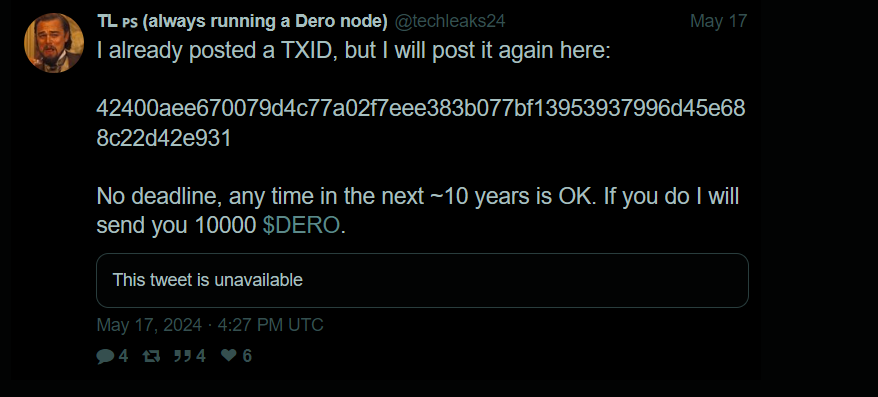 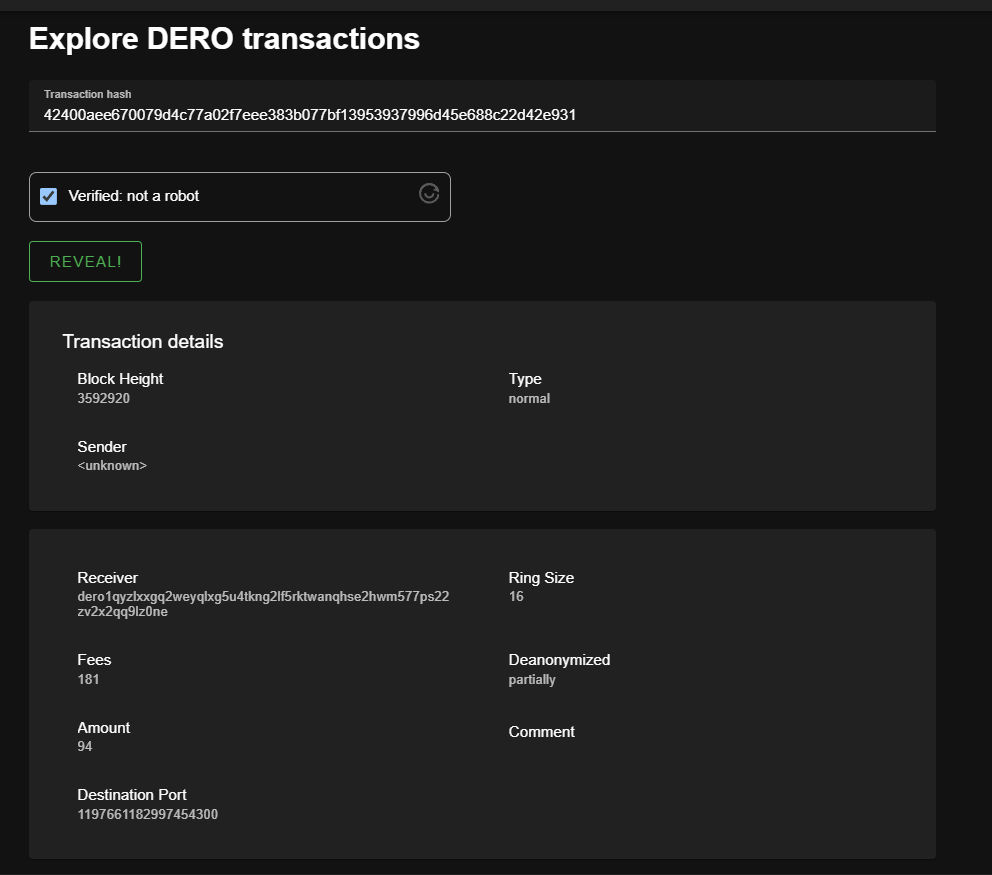 Thanks for Kaya (Monero cryptography researcher) for the research into the [deanonymization of the Dero network](https://gist.github.com/kayabaNerve/b754e9ed9fa4cc2c607f38a83aa3df2a)!
Hi everyone, we're updating user guides on getmonero.org however we don't have IOS device to take screenshot to update the outdated screenshots. So I'm looking for volunteer for updating [this](https://www.getmonero.org/resources/user-guides/join-monero-matrix.html) guide. **The task:** 1. Download Matrix messenger called [Element](https://f-droid.org/packages/im.vector.app/) 2. Open the app and take a screenshot 3. Click on register [and follow this guide](https://www.getmonero.org/img/resources/user-guides/en/join-monero-matrix/iphone.png) **but use `monero.social`** instead of `https://matrix.monero.social` 3. Take another screenshot and send to me (or us). Then we will use screenshot(s) for the guide. Relevant [git issue](https://github.com/monero-project/monero-site/pull/2364) If you have questions feel free to ask.
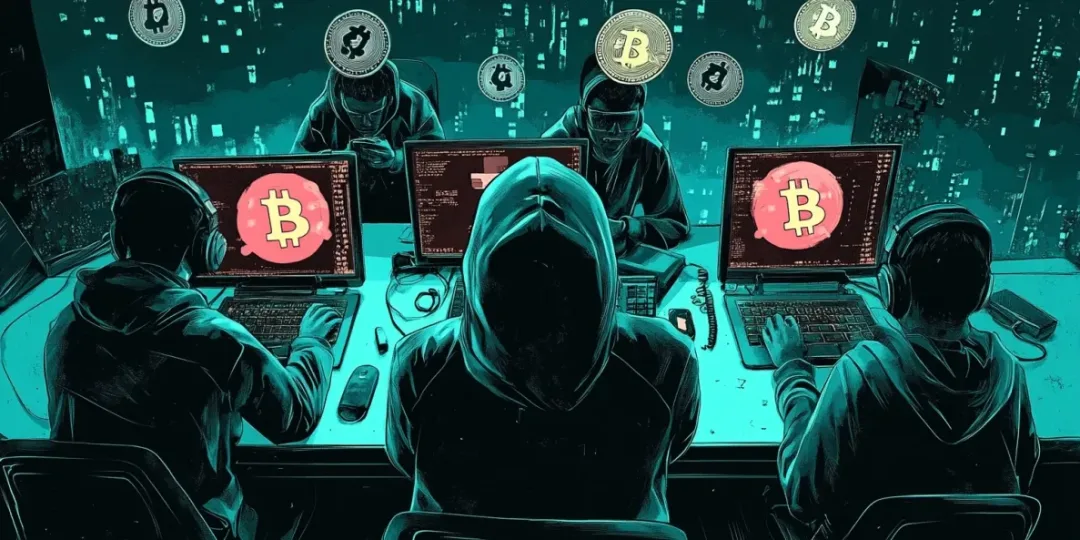 coinmarketcap.com
coinmarketcap.com
>Governments are increasingly stepping up their efforts to regulate the use of cryptocurrencies, particularly those that enhance user privacy, amid concerns over money laundering and illicit activities. A recent academic paper suggests that targeting privacy-preserving blockchains, such as Monero, could help combat financial crimes, while the United States government has filed legal complaints to recover millions in digital assets stolen by North Korean hackers. > >**Lazarus Group Faces Asset Seizure as US Targets Stolen Crypto** > >US Government Moves to Seize Over $2.67 Million in Digital Assets Stolen by North Korean Lazarus Group > >The United States government filed two legal complaints on Oct. 4, 2024, aiming to seize more than $2.67 million in digital assets linked to the notorious Lazarus hacking group. The digital assets were stolen in two high-profile hacks targeting the Deribit options exchange in 2022 and the Stake.com gambling platform in 2023. > >According to court documents, the US government seeks to reclaim approximately $1.7 million in Tether (USDT) stolen in the 2022 Deribit hack, which resulted in a loss of $28 million for the cryptocurrency options exchange. The hack involved Lazarus Group breaching Deribit’s hot wallet, then funneling the stolen assets through the Tornado Cash mixer—an anonymizing service—followed by several Ethereum addresses in an attempt to avoid being traced by law enforcement. > >The second legal filing targets roughly $970,000 in Avalanche-bridged Bitcoin (BTC.b) that was stolen in the 2023 Stake.com hack. The Lazarus Group’s attack on the popular gambling platform led to more than $41 million in losses, making it one of the most severe crypto-related security breaches in recent history. > >Both filings mark a concerted effort by the US government to not only recover funds from the Lazarus Group’s hacking operations but also to disrupt the organization’s financial infrastructure, which is reportedly used to fund illicit activities on behalf of the North Korean government. > >The Lazarus Group, a state-sponsored hacking organization based in North Korea, has been implicated in a series of high-profile cyberattacks on cryptocurrency exchanges and other digital financial platforms. The group’s activities are believed to be part of a broader strategy by the North Korean regime to circumvent international sanctions through cybercrime. > >The Deribit and Stake.com hacks, while substantial, represent only a fraction of the group’s operations. On-chain investigators have linked the Lazarus Group to numerous other attacks, including the July 2024 breach of the WazirX exchange. This incident saw over $235 million stolen from the platform, further cementing the Lazarus Group’s reputation as a global menace in the cryptocurrency space. > >The group's use of advanced techniques, such as leveraging decentralized finance (DeFi) platforms, cross-chain bridges, and anonymizing mixers, has made them a difficult target for authorities. However, the Oct. 4 filings reflect growing success in law enforcement’s ability to track stolen assets on-chain, signaling a potential shift in the fight against state-sponsored hacking. > >**North Korean Developers Infiltrating Crypto Projects** > >The Lazarus Group’s cybercrime activities extend beyond direct attacks on exchanges. In an alarming report released on Aug. 15, 2024, on-chain sleuth ZackXBT revealed that North Korean developers have infiltrated at least 25 cryptocurrency projects. Operating under fake identities, these developers reportedly compromised codebases and looted project treasuries, all while working under the direction of a single North Korean entity. This revelation raises serious concerns about the security of decentralized finance projects and the broader crypto ecosystem. With rogue developers accessing critical infrastructure, the Lazarus Group’s reach extends well beyond the hacks that make headlines, posing an ongoing threat to the cryptocurrency community. > >In response to the Lazarus Group’s persistent cyberattacks, the US Federal Bureau of Investigation (FBI) issued multiple warnings in September 2024. The FBI highlighted the group’s use of social engineering scams to target unsuspecting individuals. > >One such scam involved fake job offers designed to trick victims into downloading malware disguised as employment documents. After building a rapport with their targets, the hackers would encourage them to open these malicious files, leading to theft or the exposure of sensitive personal data. > >The US government’s aggressive moves to recover stolen digital assets signal a growing international effort to crack down on state-sponsored cybercrime. The Lazarus Group’s continued activities also highlight the persistent vulnerabilities in the crypto space, especially concerning the use of decentralized finance platforms, mixers, and cross-chain bridges for laundering stolen assets. > >As the legal battle to recover stolen funds unfolds, the case could set important precedents for law enforcement's ability to track and seize digital assets in cybercrime cases. > >Cryptocurrency exchanges, DeFi platforms, and other digital asset providers will likely face increased pressure to enhance their security protocols in response to these developments. In addition, regulators around the world may accelerate their efforts to establish stronger frameworks for digital asset security, particularly in the context of protecting consumers from state-sponsored cyberattacks. > >**Academic Paper Suggests Targeting Privacy-Preserving Cryptocurrencies to Combat Money Laundering** > >In a paper titled ”Reconciliation of Anti-Money Laundering Instruments and European Data Protection Requirements in Permissionless Blockchain Spaces,” published in the Journal of Cybersecurity, the author suggests that governments should consider targeting cryptocurrencies—particularly privacy-preserving chains like Monero—to combat money laundering. The paper explores various methods of undermining trust in permissionless blockchains and outlines the difficult balance between enforcing anti-money laundering (AML) regulations and preserving user privacy in the European Union’s data protection framework. The paper's insights, published in 2021, have recently gained renewed relevance, as debates around the use of cryptocurrencies for illicit purposes intensify. Privacy-enhancing cryptocurrencies and decentralized platforms like mixers are increasingly under scrutiny by regulators, especially in light of the rise in digital asset adoption and the regulatory challenges it presents. > >In the academic paper, the author outlines several methods that could potentially be employed by governments to undermine trust in permissionless blockchain networks. These methods include: > >`51% Attacks: This involves a group gaining majority control of a network's mining or staking power, enabling them to alter the blockchain's transaction history or double-spend assets. Price Suppression: Through market manipulation, governments could cause the price of privacy-focused cryptocurrencies to plummet, reducing confidence in their use as a store of value. Sybil Attacks: A malicious actor creates numerous fake identities within a network to gain disproportionate influence, allowing them to manipulate or disrupt its operations.` > >These strategies, the author argues, could shake user confidence in permissionless blockchains by casting doubt on the ability of the network’s protocol to ensure smooth and secure operations. Undermining the security and stability of blockchain networks could, in turn, dissuade users from adopting privacy-enhancing cryptocurrencies, potentially curbing their use for money laundering and other illicit activities. > >However, the paper warns that such drastic measures should only be considered as a last resort, once other regulatory approaches have been exhausted. The author argues that governments should first focus on more conventional tools, such as: > >`Blacklisting suspicious wallet addresses Flagging suspicious transactions Enforcing sanctions on known bad actors Strengthening existing Know Your Customer (KYC) and AML regulations` > >The paper ultimately calls for a nuanced approach that balances the need for regulatory compliance with the importance of innovation and user privacy. As the author concludes, any action taken should aim to promote both the safety of the financial system and the protection of individual privacy rights. > >*Monero and the Debate Over Privacy Coins* > >Although the paper was published in 2021, its findings are now being viewed through a sharper lens, particularly in the context of privacy coins like Monero. Some observers have begun to theorize that tactics similar to those proposed in the academic paper may already be in play, as seen in the perceived manipulation of Monero’s price. > >Monero has long been in the crosshairs of regulators due to its privacy-preserving features, which make it difficult for law enforcement agencies to track transactions. The debate over the cryptocurrency has escalated in recent years, with some exchanges, including Kraken, opting to delist Monero in specific jurisdictions such as the European Economic Area. > >This renewed focus on privacy coins has led to questions about their viability in an increasingly regulated environment. As governments worldwide seek to clamp down on crypto-related money laundering, privacy coins like Monero find themselves at the center of the debate between financial transparency and individual privacy. > >One of the central questions raised by critics is whether the focus on cryptocurrency-related money laundering is an excuse for governments to impose tighter control over digital assets. Several reports have suggested that the use of cryptocurrencies for criminal activities is relatively low compared to traditional forms of finance. > >In 2022, United Nations officials revealed that terrorist organizations predominantly use cash to finance illicit activities, a claim that was later corroborated by the United States Treasury. According to a 2024 report from the US Treasury, fiat currency remains the preferred medium for criminal enterprises, even when digital assets are used in illicit schemes. > >The Treasury report further admitted that the crimes committed using digital assets often mirror age-old scams that could just as easily have been carried out using cash or other forms of value. This raises questions about the true motivations behind the regulatory crackdown on cryptocurrencies and whether traditional financial systems are receiving less scrutiny despite being the primary tool for money laundering and terrorism financing. > >Despite these findings, governments around the world continue to target privacy-enhancing tools in the cryptocurrency space. A high-profile example is the ongoing legal case against Roman Storm, co-founder of the Tornado Cash mixer. Tornado Cash, which enables users to obscure the origin of their transactions, has faced severe backlash from regulators, particularly in the United States. > >On Sept. 26, 2024, a US judge ruled that the case against Storm could proceed, marking a significant step in the government’s efforts to curtail the use of crypto mixers for illicit purposes. Tornado Cash has been accused of facilitating money laundering by enabling users to anonymize transactions, making it difficult for law enforcement agencies to trace funds back to their origin. > >This crackdown on privacy-enhancing tools has ignited a heated debate within the cryptocurrency community. While some argue that tools like Tornado Cash play an essential role in maintaining user privacy, others contend that such services are too easily abused by bad actors, necessitating stricter regulation or outright prohibition. > >As the regulatory landscape continues to evolve, the fate of privacy coins and crypto mixers remains uncertain. Many experts believe that regulators are unlikely to allow these tools to operate freely without significant oversight. The recent actions taken by the US government, along with similar moves in other jurisdictions, indicate that a more stringent regulatory framework is on the horizon. > >For privacy coins like Monero, this could mean tighter restrictions on where and how they can be traded. Several exchanges have already delisted Monero in response to regulatory pressure, and more may follow suit if the global crackdown on privacy coins intensifies. By *Coinpaper.com*
**Gupaxx v1.5.0 released** [https://monero.observer/cyrix126-releases-gupaxx-v1.5.0-monerod-integration/](https://monero.observer/cyrix126-releases-gupaxx-v1.5.0-monerod-integration/)
Just send it to wallet to new wallet to new wallet a few times. Easy peazy and cheap even for people with only pennies. Stop playing games and use it "by default" like how it's intended and it even defeats the problems most apparent in "breaking monero" series. How did you not figure this out already?
if you don't down vote me to hell then I will reserve at least one slot for this round for people that post here and on Twitter. Catch an easy 0.1 xmr by posting a listing and your address
 kewbit.org
kewbit.org
By simplifying how addresses are shared, speeding up wallet synchronization, and ensuring more reliable output detection, Jamtis represents a big leap forward in usability—without sacrificing Monero’s commitment to privacy and security.

By simplifying how addresses are shared, speeding up wallet synchronization, and ensuring more reliable output detection, Jamtis represents a big leap forward in usability—without sacrificing Monero’s commitment to privacy and security.
This publication is an invitation to look at pricing and exchange rate formation from a new and unusual perspective. Monero's technological solutions are undoubtedly impressive - it's a great job. But we will never free ourselves from the modern monetary system, no matter how hard the community tries to technologically resist it by valuing Monero in fiat currencies. The conceptual solution that will break out of this vicious circle is to be found in the field of economic theory, namely in pricing. The original concept which provide metrological unambiguity of economic theories is: ***The invariant of the price-list***(measure of value). ***The invariant of the price-list*** characterize by when products are exchanged on the two-way scheme “Product1→Money→Product2” there is a one selected product among the products of the money group, which is: - A full participant in the natural product exchange with other usefulness moreover, that is constantly performing the function of an intermediary product in the two-way scheme “Product1→Money→Product2”. - In its quantity publicly recognized prices are expressed by all other products into the all operations of products exchange on the market. (consequently, price of a unit of account by product-invariant expressed in the quantity of invariant – always will be 1. This property provide name of term - The invariant of the price-list. In other words invariant to invariant is always exchanged in proportion 1:1). Whoever sets the invariant price list sets the rules of the game. For example: - modern regulators have created slavish rules. After Richard Nixon's financial adventure in 1971 set invariant - 1$=1$, and all rights of issue are monopolised. - if you assign your own invariant - the game is played by your rules, it’s relevant for local economies. - When you use a universal invariant - you unite everyone around you because it has an effect on EVERYONE whether you are aware of it or not. Finance is a sphere of existence that is constantly evolving along with humanity. It cannot be monopolized by a collective farm of bankers and moneylenders and their organizations. It cannot be monopolized at all. In order to exist, cryptocommunities have to change their investment and financial behaviour by creating their own monetary system. There has been no good from the flirtation with the fiat money system. The regulators are wiping out free players in order to maintain their monopoly on money and the status quo. To achieve true financial decentralization and freedom, pricing must be gradually, psychologically and conceptually decoupled from fiat currencies and freed from their jurisdictions. By pricing in terms of universal values that apply to every business unit. One of these values is the ***energy invariant of the price list*** and based on this concept ***The Energy Standard of Payment Instruments***. ***What is energy standard? Energy standard*** – is an alternative standard of monetary system, that takes into account the number of better spent energy for producing goods and services. ***Why energy standard?*** Because this standard allows to create an economic relationship transparent, understandable for all, metrologically accurate and efficient. ***Why should we alternative monetary system?*** Today’s world monetary system is not able to work for all mankind. This system is characterized by inflation, based on manipulation of the lending interest rate, feeling of fear from property loss and etc. The system sponsors and credits the degradation and parasitic needs of society. Today’s “financial world” grows and serves only separate exclusive part of society. This leads us to a not rational and critical use of our planet's resources to the point of endangering the existence of humanity. ***What's wrong with the current monetary system?*** Before we answer that question, we need to answer one more... ***What is the current monetary system?*** The global monetary system is an instrument for managing the global economy. This system is intended to control economic transactions and is a tool for the integration of many private businesses into a holistic macroeconomic with a full spectrum of productive sectors **which are necessary for the owners of the current monetary system.** ***The quality of our lives depends not so much on how we work as on how we are managed.And the quality of their management is very poor!*** **The energetic basis of the price-list always exists during the whole history of our civilization and can be divided into two epochs:** — Before the 20th century – the epoch of manufacturing on the biogenic energy basis. The source of which is the plant photosynthesis. Thus the productivity of natural flora and cultural plant growing is at the heart of the prosperity. — Since the beginning of the 20th century – the epoch of manufacturing mainly on the technogenic energy basis. Modern professional economic science and people are sadly mistaken by choosing fiat currencies as the invariant of the price-list - 1$=1$. Because not one fiat currency does not belong to primary energy basis and is not а full-valid unit of the natural product exchange, only accompanies it. And psedo-abstraction as petrodollar serves a narrow syndicate of monopolists in the energy sector, and is deliberately promoted by science to avoid organic decentralization of economic calculations. All their greatness and power lies in the fact that they have imposed their invariant of price list on all mankind. For the economic growth and prosperity of mankind, "galvanizing the corpse" of the gold standard will be fruitless. In Spain, during the colonial era and the flawless gold circulation from 1492 to 1600, the prices of goods in gold equivalent tripled. This happened because the volume of production remained virtually unchanged, while the amount of gold in circulation increased significantly. Ultimately, these imports contributed to inflation in Spain in the last decades of the 16th century. Many people preferred to invest their money in public debt, which was invested in silver mining, rather than in the production of finished goods and the search for improved agricultural methodology and practices. Such long-term investment behavior led to stagnation and degradation of the methodology of managing the economic complex of the Spanish Empire, and as a result, to the loss of influence on the world stage. Since the second half of the twentieth century the best price-list invariant for markets is a kilowatt per hour (kWh). Because: — the most economic entities are consumers of electricity; — the electricity tariffs are part of the energy price list; ***In this case all financial and economic analysis and forecasts will have become metrologically sustainability and unambiguousness by expressing all estimated and real prices, cost prices and other financial indicators in kilowatts per hours for long time periods.*** The currency turnover is financially expressed by statistical characteristics: total number of sales transactions by marketplaces and by regional electricity tariffs. Total value of transactions is the value of trade in nominal terms. This is the volume of turnover GDP in kWh as well as the volume of turnover of funds. In practice, it is an energy currency and there is a clear metrological link between the currency base and the range of products that it covers. 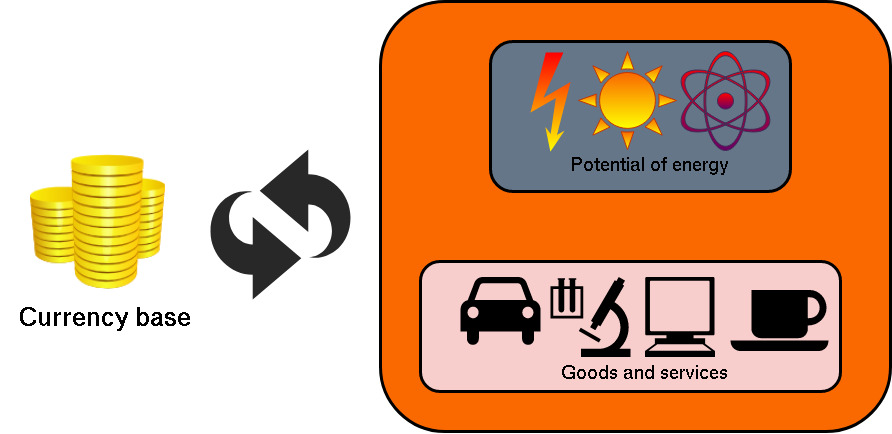 Exchange rate for the Monero currency - can be formed according to the coverage of cryptocurrency by economic entities. GDP is total number of sales transactions by marketplaces and by regional electricity tariffs. One of the real-life cases – XmrBazaar. Every seller and buyer there are consumers of electricity. And eelectricity tariffs are part of the energy price list and are included in the cost of production. The GDP statistic it's goods + services which Monero covers, can be expressed in kWh. Then: ***CER = GDP/CB;*** ***CER*** – currency energy rate; ***GDP*** - Gross domestic monero product; ***CB*** – nominal currency base; For example: CDP (Suppose that all coverage Monero blockchain) = 30 000 000 000 kWt; Monero CB = 18 446 744 XMR; Then: 1XMR = 30 000 000 000/18 446 744 = 1626 kWh
we are getting suppressed on Twitter. it's getting bad very fast. but my monero contest continues. any QR code to a non-custodial wallet and a link to a Monero listing of some sort is a winner
Achieving a thriving Monero Circular Economy with Alaskanon | (MT 326) TODAY'S 🎙SHOW: Douglas Tuman interviews Alaskanon, a dedicated advocate of Monero and financial sovereignty, about the growing momentum of Monero's adoption, the challenges of building a circular Monero economy, and the importance of decentralized, private digital cash. Alaskanon emphasizes how Monero stands out as the best form of private currency and draws parallels between the weakening of fiat currencies and Monero's long-term potential. The conversation also touches on the necessity of educating others about Monero's value, while highlighting the need for proactive steps toward financial freedom by adopting Monero. Watch Here (YouTube)➡️ https://www.youtube.com/live/m_VMSovBh4g?si=emUOHSYdCVB4GKqn Watch Here (Odysee) ➡️ https://odysee.com/@MoneroTalk:8/achieving-a-thriving-monero-circular:e Listen Here 🎧:https://www.monerotalk.live/monerotalk-326 Coffee & Monero, Go to Gratuitas.org today! {Buy your MoneroTopia 24 Mexico City Confer tickets TODAY at MoneroTopia.com! } FOLLOW US https://monero.town/u/monerotalk & https://mastodon.social/@monerotalk Thank you to sponsors, u/cakelabs and u/Stealthex_io as well as u/sunchakr for making these interviews possible! And of course our listeners and supporters for making Monero Talk possible! Podcasts 🎧 : iTunes: https://podcasts.apple.com/us/podcast/monero-talk/id1445930212 Spotify: https://open.spotify.com/show/60lQ05X8lcuXv71fhi6hl7?si=SL2rlvDPS0q68169NlCrtQ If you enjoy our show please Subscribe, Like, Share, Rate our YouTube Channel & Podcasts. This will help us grow and spread Monero content!
nitter: https://xcancel.com/revuoxmr/status/1842963892299063553
Form *[https://www.reddit.com/r/Monero/comments/1fwmhto/rino_wallet_closing_down_end_of_october/](https://www.reddit.com/r/Monero/comments/1fwmhto/rino_wallet_closing_down_end_of_october/ )* >**Hello everyone,** > >It is with a heavy heart that we announce the upcoming winding-down of RINO. > >A few years ago we realised Monero was missing critical bits of professional tooling for teams, be it companies, NGOs or fluid groups of individuals. One missing tool we identified was a wallet software that allows multiple users to deal with shared funds in a secure way. Professional principles such as splitting roles among transaction preparers and approvers, hierarchical transaction limits within an organisation etc were not just available for every other large blockchain project, they are the de-facto standard used in the industry. > >And so we embarked on a mission to offer similar tooling for Monero, aiming to boost its adoption by the industry at large. This was and remains a worthy and exciting goal, especially as the Monero project is too often delisted or unsupported, often out of regulatory concerns but also because the usual tools expected by the industry are still largely absent. > >While we attempted to monetize the platform via paying businesses, we’ve also always offered a free version of RINO so the community benefit from its features. It was not just the main RINO wallet product: many of you will remember using our “community tools” over the years, such as nodes, explorers, faucets, docker images etc. We are very proud of this and grateful to all community members for the nice words over the years. Ultimately though, our attempts to monetize the product never bore fruit to a point where the product could sustain itself, and at some point we have to cut our losses. As a consequence, we decided to discontinue the RINO product. > >We will shut down the platform on October 31st, 2024. If you want to withdraw your funds via the RINO platform, please do so until that date. After that date, you will have to use your recovery document, allowing you to access your funds locally. > >Long live Monero, and a big thank you to everyone who supported us. We hope to build more cool things with Monero in the future :) > >**The RINO team** > >PS: Note that there is a known bug affecting wallets that haven’t been accessed for a long time, due to a synchronisation issue. If you connect for the first time since many months, it is possible your wallet will hang when attempting to send a transaction. If it is the case, just wait ~1h (your wallet will automatically resync on our servers), after which it will be fully functional. This only affects old wallets not accessed for a while, and will only affect them once. > >PPS: Unfortunately there is no “sweep” feature on RINO. If you want to empty your wallet via the RINO platform it is possible some picoxmr dust remains on your wallet if you do not take exactly into account the transaction fees. Use your recovery document if you want to access remaining dust.
